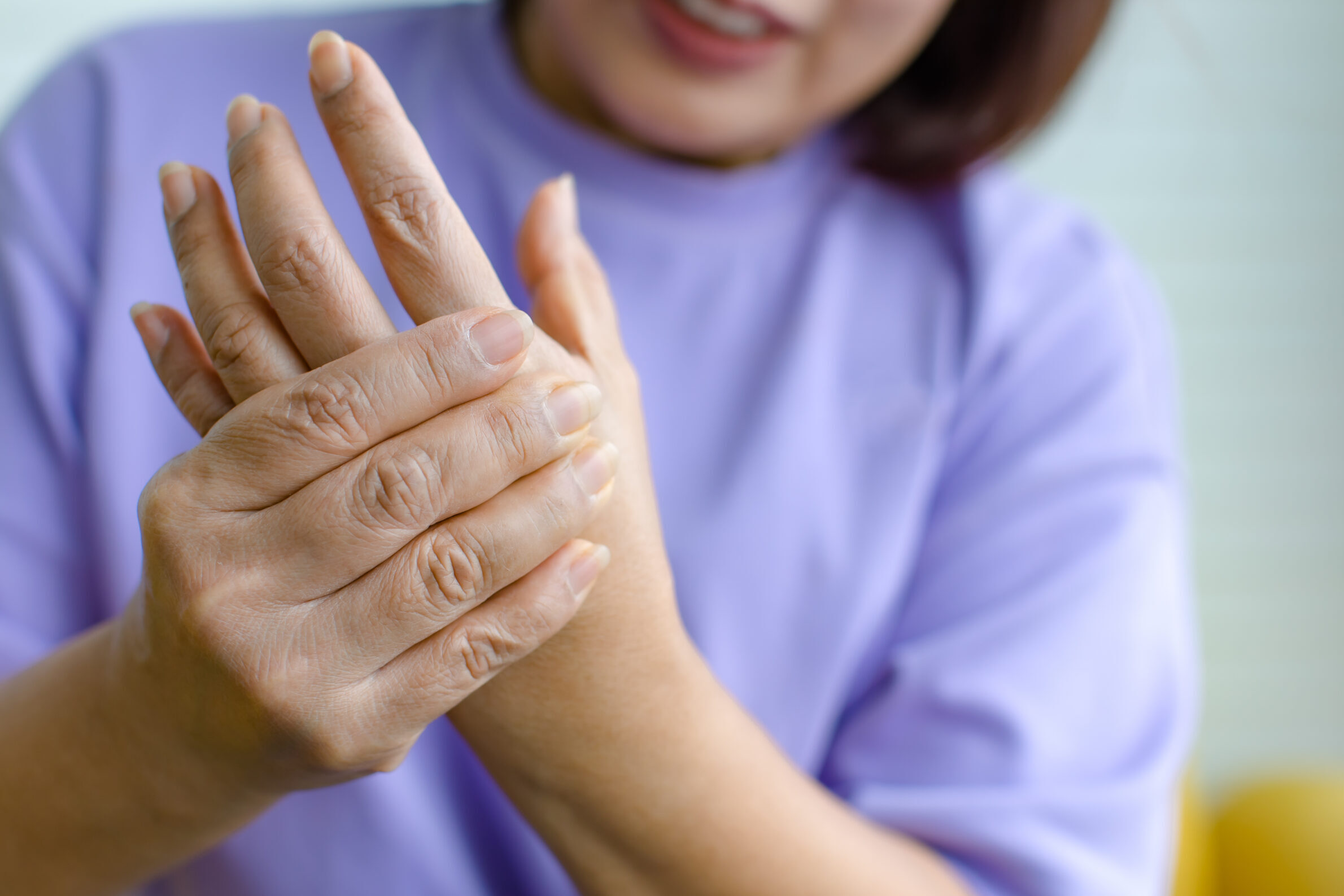Numbness and Tingling (paraesthesia)
Over our lives, many of us experience numbness or pins and needles in various parts of our bodies. However, there may be an underlying cause that we need to address, such as an injury, nerve damage, or a medical condition, if you experience these sensations often.

What are numbness and pins & needles?
Numbness refers to a loss of feeling in a part of your body, which can be partial or total. When you experience numbness, you might struggle to feel touch, temperature, or pain in the affected area.
Some people say their hand or foot feels numb when they experience pins and needles, though this is more of a prickling or tingling sensation. The two are very similar, and their causes and treatment options often overlap.
Many people experience these sensations in their fingers, toes, arms, legs, or face, but they can affect any body part. They can be temporary or permanent, depending on the cause, and they can be uncomfortable or even alarming.
Numbness or pins and needles may accompany other symptoms, making it difficult to perform everyday tasks. If you experience persistent or severe pins and needles, visit a doctor or neurology specialist to determine the underlying cause.
Can pins and needles be dangerous?
In most cases, pins and needles are not dangerous, as they are usually temporary, caused by pressure on the nerves.
However, in some cases, pins and needles can be a symptom of a more serious underlying condition. For example, you may experience pins and needles due to nerve damage from diabetes, multiple sclerosis, or a spinal cord injury.
When should I seek urgent help for numbness?
Seek medical help if you suddenly experience leg numbness, weakness, or paralysis. You should also visit emergency care if you have numbness spreading to other parts of your body, with severe pain or swelling, or lasting a long time.
Additional reasons to seek urgent help include numbness not improving with self-care measures or being accompanied by loss of bladder or bowel control.
FAQs
How to stop pins and needles in hands and fingers
If you experience pins and needles in your hand, try stretching or shaking your arms and hands to improve blood flow and relieve pressure on the nerves. You could also try massaging the affected area or heating it with a warm towel, heating pad, or warm bath.
Avoid wearing tight clothes, especially around your wrist, as they can compress your nerves. Poor posture could increase tension in your neck and shoulders, contributing to numb hands and fingers. If you’ve had your hand in the same position for a while, take breaks and change positions occasionally.
How to stop numbness in legs and feet
Regular exercise and wearing proper footwear can improve blood flow and circulation, which can help reduce numbness. Try low-impact exercises like walking, swimming, or cycling.
Sitting with your legs crossed can restrict blood flow and worsen numbness. Try to sit with your feet flat on the ground. You could also try stretching, massage, and warming the area.
When should I worry about numbness in my toes?
If you experience persistent or worsening numbness in your toes, see a doctor to determine the underlying cause and receive appropriate treatment. Possible causes include peripheral neuropathy, Raynaud’s disease, and a pinched nerve in the lower back.
Reynaud’s causes narrowing of the blood vessels in the hands and feet, resulting in numbness and tingling. See a doctor if you also experience colour changes in your toes. If you have a pinched nerve, speak to a doctor if you develop back pain or other nerve-related symptoms.
Additional signs to seek help include pain, cramping or weakness in your legs and loss of coordination.
Contact Us
Ten Harley Street Limited10 Harley Street
London W1G 9PF
United Kingdom
Opening Hours:
Monday to Friday 9am to 5pm
Call: 07954 847 479

